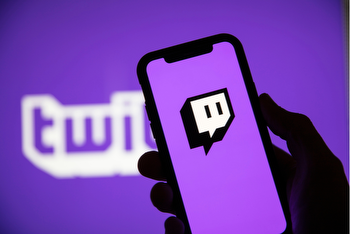Twitch takes on the gambling meta → Could there be a middle ground?

Twitch has announced that they are banning referral links and codes to slots, roulettes, and other gambling streams on its platform. They say that their aim is to protect their users from potential fraud or scams.
The gambling meta
The gambling meta has been a major source of contention for the Twitch community for some time now. Popular streamers have ended up on both sides of the debate. It seems to have split the community in two.
Popular Twitch streamers like Tyler “Trainwrecks” Niknam and Félix “xQc” Lengyel have both jumped on the gambling train. They spent countless hours spinning digital slots. Other popular streamers like Pokimane, Asmongold, Cr1TiKaL, and Clint Stevens have called out the potentially harmful consequences of glorifying gambling to Twitch’s often underage viewers.
The ban
In response to the criticism Twitch posted a Creator Update on their changes to the gambling meta:
“To prevent harm and scams created by questionable gambling services that sponsor content on Twitch, we will prohibit sharing links and/or referral codes to sites that offer slots, roulette, or dice games.
“We will continue to monitor gambling-related content and update our approach as needed. To give you time to remove this content from your channel, enforcement will be delayed until August 17, 2021.”
So, this new policy will prohibit the links and referral codes but not ban the streams themselves. While some have praised Twitch for a move in the right direction, others are still not happy with the changes and feel that they need to go further. Streamer Devin Nash said of the new update:
Many people believe that there may be an issue with gambling advertising on Twitch, but is an outright ban on gambling the right thing to do?
Is a ban the right solution
The need for Twitch to curb the popularity of gambling streams is completely understandable. Kids as young as 13 can create an account on the streaming platform and watch their favourite content creators gamble for hours. It just doesn’t seem right to have that sort of content so freely and obviously available.
However, if streamers are sponsored by reputable gambling or betting sites that have been approved by Twitch beforehand, and they clearly state that their content is sponsored, maybe these sorts of streams could have still gone ahead behind an age-gated wall? Could there have been a better middle ground?
The banning of the referral codes is a step in the right direction for Twitch, but if they found a way to offer age-gated streams without pushing away their core audience, there could be a more equitable solution that didn’t threaten streamers revenues or the fans enjoyment. That may take a lot longer than implementing a referral code ban but it could improve the community in the long run.

































